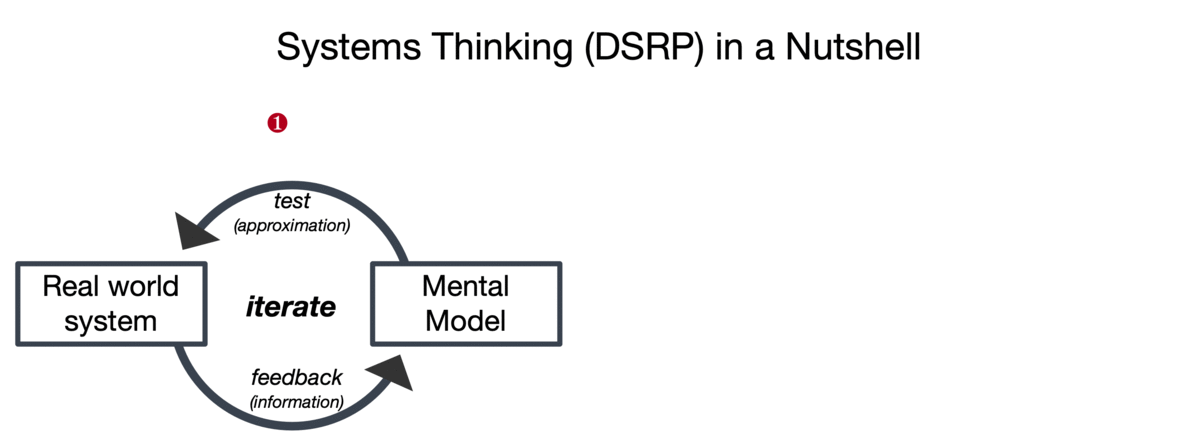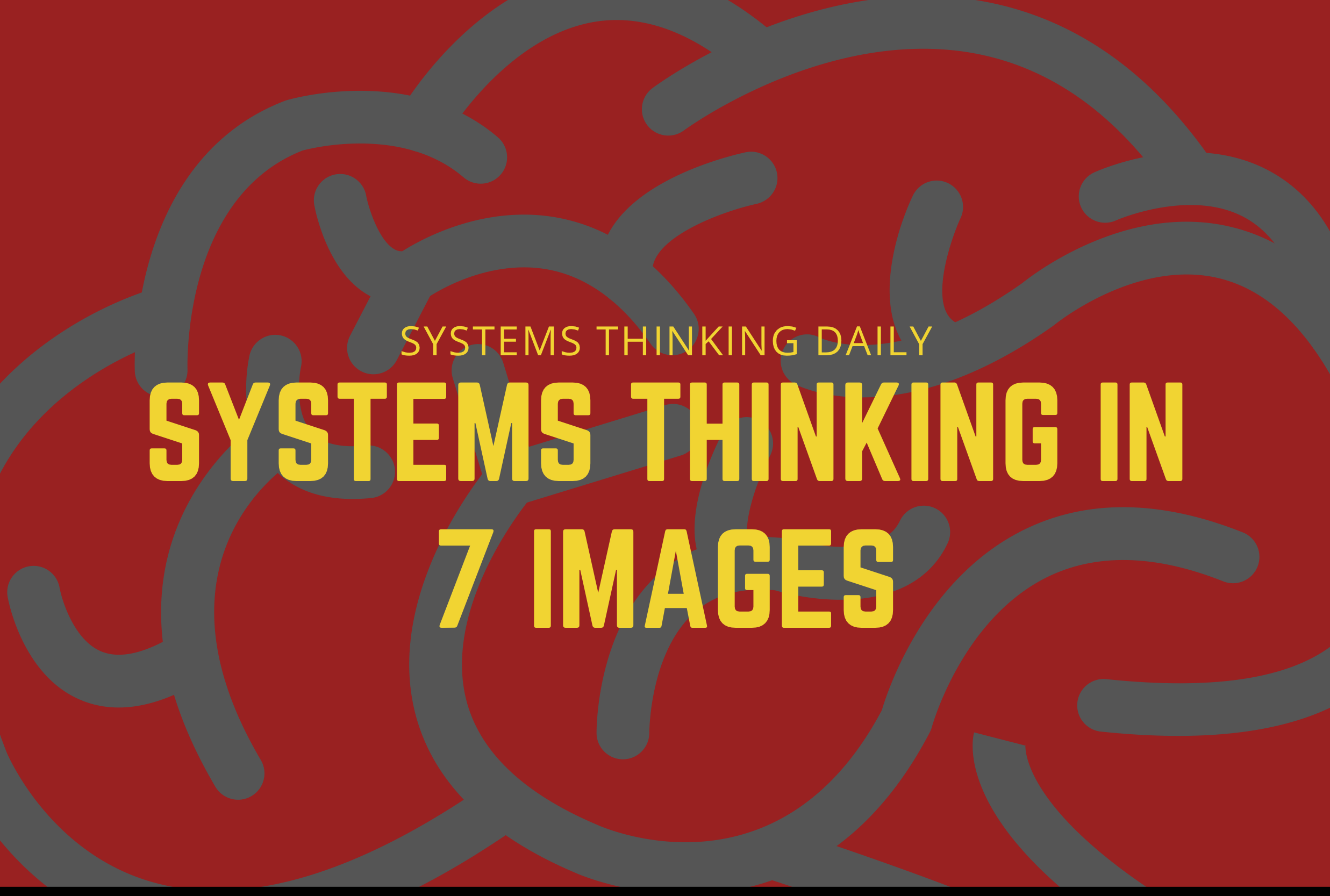The Systems Thinking Loop
The "Systems Thinking Loop" (or "ST Loop") is where the rubber meets the road for systems thinkers. It is perhaps the most important of all the images because it describes WHAT systems thinking really is and HOW to do it. It is best to digest this image (Systems thinking itself) in three bites (red):

- The ST Loop itself, which explains that all mental models are wrong but some are useful. Their utility is predicated on the degree to which they approximate the real-world which is determined by testing them in the real world and receiving feedback in the form of information.
- M=I x T, which explains that our mental models (M) are made up of the information (I) we receive from the real-world (through a veil of DSRP by the way—called "Reality Bias") and thinking (T).
- Defines specifically what we mean by information (I) and thinking (T) by defining, in particular, the universal patterns of thinking that underlie all systems thinking and cognition.
In a nutshell, we see that Systems Thinking isn't something you do, but something you get. It is a complex adaptive system or CAS, the emergent property of which is Systems Thinking. You get Systems Thinking by doing DSRP (simple rules).
.png?width=150&height=150&name=CRL%20GOAT%20Logo%20(4).png)


